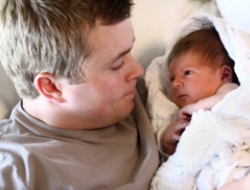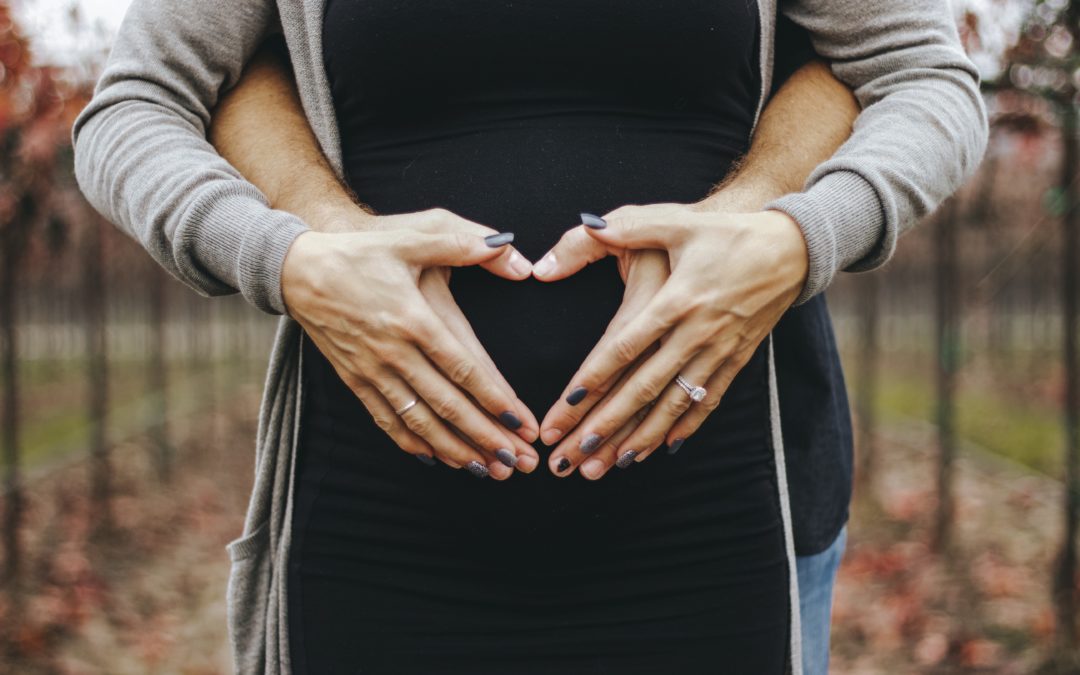
Approximately 90% of fathers are with their partners during the birth of their children, but should fathers be better prepared for attending and supporting birth?
While no one was looking, the very foundations of our society, our culture and our families have undergone a metamorphosis. What about fathers at birth? There is really no discussion to be had about whether or not fathers ‘should’ be in the room for the birth of their children. This debate was held years ago, practice shifted and parents now make their own choices in this regard. Today approximately 93% of fathers are with their partners during the birth of their children.
However, is father’s presence at birth or not the issue? Or perhaps, is there a different question we could be asking? Should fathers be better prepared for attending and supporting birth would be a better and more pertinent question.
Dr. Robert A. Bradley was a mid-20th century obstetrician in the USA. He was an early innovator at bringing fathers into the birthing room. The emphasis of his ‘birth philosophy’ was that women know how to give birth naturally. He believed that the presence and support of the father during labour and birth was important to the mother’s success in achieving a natural, normal birth. Dr. Bradley presided over 20,000 drug-free, hospital births in his career with fathers present. His parents took classes he designed and the births involved fathers supporting their partners with very successful and satisfying outcomes, physically and emotionally.
A very delicate balance of elements is required for a mother to have an optimal birth experience. These include elements in her physical environment, calm, quiet and a sense of safety. In addition, the people present, lack of interference and even her personal emotional history are important. While putting these pieces together for modern hospital births can seem daunting, it is also quite simple.
Part of the subtle biology of birth relies on oxytocin; one of the hormones the mother’s body produces to trigger the onset of labour as well as its continuation. Oxytocin is also known as the ‘hormone of love’ as it is a significant ‘ingredient’ while love making. However, adrenaline can counteract or neutralise oxytocin. Fear is a primary trigger for an adrenaline response. Anyone in the room at a birth, doctors, midwives, fathers, relatives, doulas and even the mother can stimulate potentially harmful adrenaline production in a mother.
That men are typically under-prepared is an important issue that society needs to address and within the context of humanity’s current perception that birth is to be feared rather than embraced as the joyous expression of life that it can be. Having said that, any midwife can testify that fathers can either ‘make or break’ a birthing environment. A father needs to feel safe himself, be well informed about how to be at birth and what ‘beneficially supporting’ the mother actually looks like.
A well prepared father has the potential to provide a tremendous sense of security for his partner. A birthing mother can easily feel overpowered with the depth of the experience she is having. In addition, for most mothers and fathers, the unfamiliar and often intimidating environment of hospitals can cause concern. The latent possibility that a couple’s relationship is a strong asset available to a birthing mother, and her carers, has been largely ignored.
Well, men produce oxytocin too and can also contribute to a woman’s production of it, remember, the ‘hormone of love’. Many couples will testify to this through the stories of their journey during the labour and birth and how they felt like they were doing it together and mothers felt strengthened by his support. There has been little research on this. I suspect because it is more a qualitative element rather that a quantifiable one. Try to measure love. Attempt to create a scale and observe where a couple’s experience of love lands on it at anytime, much less during a peak experience like birth. Also the birth of each child is a one-time only event, impossible to repeat, replicate or control. Birth can be a very sensual and intimate experience between a man and a woman, if allowed to be. It is an extension of the sexual experience that began this phase of a couple’s life together.
Another extremely significant element regarding a father being present at the birth of his child is that it can kick-start his fathering instincts like nothing else. Men have increased hormonal production at this time, albeit in smaller doses, which will help to ‘switch-on’ their own nurturing and protection instincts.
The foundations of the family are laid during pregnancy, birth and the breastfeeding time. When a father is properly included during this irreplaceable time, and the experience of the whole family is acknowledged and supported, a unique bond is established between family members that will last a life-time. Fathers who feel welcomed and included are more likely to stay. Fathers who feel abandoned, alienated, and excluded will tend to leave, disappear. Disappearing can look like, over-working, drinking, drug use, infidelity, spending time away from the family and ultimately separation and divorce; the current trend in our society.
I have never professed that all fathers should be at the birth of their children. I have, however, found it to be immensely rewarding experience for myself and many other men report the same. The potential for establishing the relationships within the family at this time are profound. I think that fathers would be missing a big opportunity to let it pass them by.
A father’s participation in the very womanly event of birth is unique to our current time. What a couple decides, regarding the birth of their children, is very personal. What is missing, culturally, is skills development and support rather than gender specific logistics. This issue is at the core of parent’s choices during the time of their family being born and it is crucial to our social development and evolution as a culture. For the vast majority of mothers, an important ingredient for her successful pregnancy, birth and breastfeeding is the quality of care she receives from the father. Fathers DO make a world of difference and isn’t it time for society to better support our children, mothers and fathers?
Article kindly provided by: Patrick M. Houser, co-founder of Fathers-To-Be









